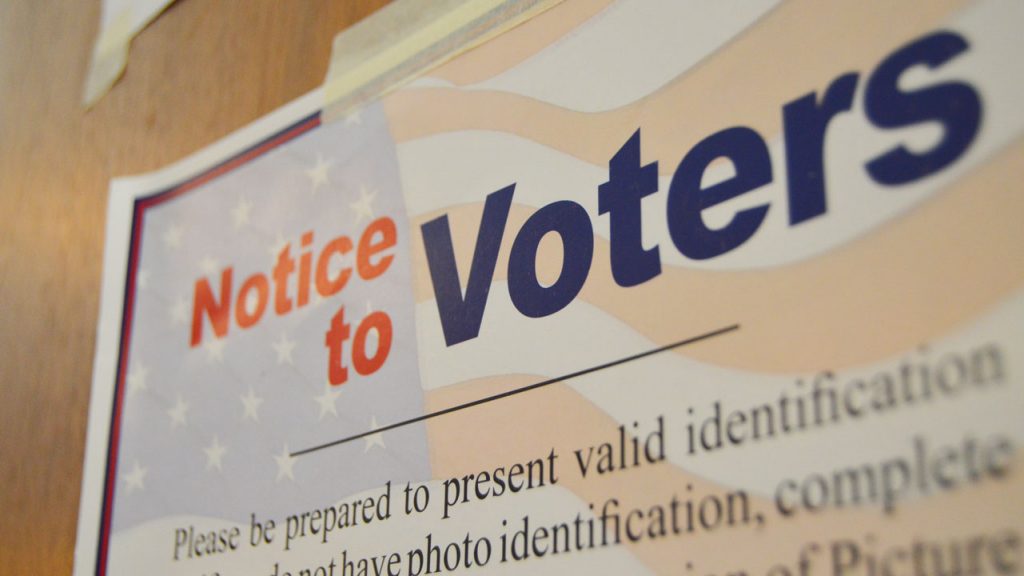MichMash Elections Special: Breaking Down the Three Statewide Ballot Proposals
Jake Neher and Cheyna Roth talk with business owners, law enforcement officials — even action stars — about the ballot questions.


There are three ballot initiatives for voters to consider on November 6th.
They involve legalizing recreational marijuana, changing how the state draws its district lines, and voting accessibility.
This special episode of MichMash – the show where hosts Jake Neher of WDET and Cheyna Roth of the Michigan Public Radio Network break down important and under the radar state issues — delves into all the ballot proposals.
Who supports the initiatives? Who is against them? How could they affect you personally if they pass, or don’t pass?
Give it a listen. Get informed. And then go vote!
Proposal 1 — Marijuana Legalization
Proposal 1 would legalize the use of recreational marijuana and regulate it similar to alcohol. For this segment, Jake Neher went to BotaniQ, a medical marijuana dispensary. He spoke to owners Anqunette and Richard Sarfoh about their journey from non-users, to medical marijuana sellers and how they think legalizing recreational marijuana could be good for the state.
Then Cheyna and Jake spoke to Blaine Koops, the executive director for the Michigan Sheriffs’ Association. The Sheriffs’ Association doesn’t have a specific position on Prop 1, but Koops talked about concerns associated with legalization, and said that more than 70 county sheriffs are against legalizing recreational marijuana.
Proposal 2 — Redistricting
Proposal 2 is a long proposal that at its core is about trying to end gerrymandering in Michigan – a state that experts have argued has some of the most rigged district lines in the nation.
While it’s worth a read, the essence of Prop 2 is to create an independent redistricting commission. It would be made up of self-identified Republicans, Democrats, and independents. They would be responsible for drawing the state’s political district lines.
This is a proposal that has had a lot of misinformation swirling around it, so Cheyna and Jake spoke to Bridge Magazine’s Riley Beggin to break down what this proposal does, and to go through some of the legitimate concerns raised about the proposal.
Cheyna spoke with former California governor and current Terminator, Arnold Schwarzenegger, as well as Katie Fahey, founder of Voters Not Politicians, the group behind Proposal 2. They explained why they think this proposal would make Michigan’s elections more fair. And Schwarzenegger explains why he thinks a similar measure that passed in California has improved politics in the state.
Finally, Jake and Cheyna spoke to Linda Lee Tarver, a Republican activist and staunch opponent of the redistricting proposal.
Proposal 3 — Voter Access
Proposal 3 probably has the most individual changes in it. While, overall, it’s all about voter access to the ballot, it has a laundry list of things it would change. Those include allowing the straight ticket voting option, statewide election audits, automatic voter registration, no-reason absentee voting, right for military and overseas voters to get absentee ballots – and there’s still more after that.
The sheer number of changes to the state constitution has some people frustrated with the proposal. Some opponents of the proposal also say state law already covers a lot of what is in the proposal. Cheyna and Jake brought back Linda Lee Tarver, this time to go in-depth on her concerns about Proposal 3.
We also hear from former state elections director Chris Thomas, who oversaw elections in Michigan for 36 years. He says all these changes are worth adopting and enshrining in the state constitution because they’ll make it easier for Michiganders to exercise their right to vote.
The Proposals that Could Have Been
There are also two big issues to keep an eye on after the election, when the Legislature comes back for its Lame Duck Session. Two proposals got enough valid signatures to qualify for the ballot, but then the Legislature came in the last time they were in session and decided to approve the measures itself, keeping the questions from going to voters in the November election.
One would increase the minimum wage over time to $12/hour. The other would require employers offer earned sick time to their employees.
These are proposals that are technically law right now, but they weren’t given immediate effect, so you’re not going to feel them for a while — if at all. What that means is there’s buzz around the Capitol that once the Legislature comes back after the election, they will pass bills to make substantial changes to these laws…and possibly completely gut them.
So even when the election is over, it doesn’t mean you can relax. There will still be a lot more going on in the state. And MichMash’s Jake Neher and Cheyna Roth will be around to keep you in the loop on what matters across the state.
